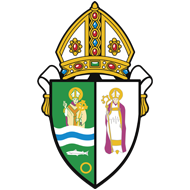The Scottish Episcopal Bishops have been reflecting on the refugee crisis in various newspapers. You can read what they say on the Scottish Episcopal Church website
The Most Rev David Chillingworth, Primus has, on behalf of the Scottish Episcopal Church, written to the Prime Minister, the letter can be read here.
Bishop Gregor has written to The Herald:
HELPING STRANGERS
There is widespread distress among our communities and in our churches at the continuing plight of the large number of refugees and migrants who are attempting to make their way into and across Europe in search of safety, new homes and a better life. All over our country people are seeking practical ways to help but no doubt also feeling helpless in the face of such a huge movement of people. And, of course in a country already undergoing austerity and cutbacks, there is anxiety about how we can cope with large numbers of new people coming in to our midst.
One thing the Bishops of the Scottish Episcopal Church have done is to write to the Prime Minister expressing our concern and calling on him and the government to respond warmly and generously to the plight of people fleeing from desperate situations in their homelands.
Of course, David Cameron is right to say that the present refugee and migrant crisis can only be resolved by tackling the chaos and disorder driving people from their homelands. Right too in pointing to what the UK is already doing to help people living in refugee camps in the countries bordering Syria. And right to be responding to increasing demands from the British public that we help by allowing more people to come and be helped in finding some kind of new life here, even if the figure of 20,000 over five years seems, to say the least, inadequate.
The image of a dead child washed up on a Turkish holiday beach had the effect of delivering many of us from seeing only a “refugee” or a “migrant” problem. Now we see human beings, with hopes and longings, just like us. We see children just like our own, and our hearts are broken by the all too obvious dangers that beset their young lives. Of course, policy makers and leaders are bound to try to address root causes, and the politics of all this are enormously complex at a European level, but symptoms remain urgently important, especially when the causes are not capable of cure any time soon, least of all by our own country, and when the symptoms are actually that so many people are in desperate need of help.
It is in trying to alleviate symptoms, in binding up the broken hearted, in giving at least some people hope of a new beginning in life, that our deepest and most abiding values are allowed to come to the fore – human solidarity, compassion, care for the individual. It is in persisting in rescue efforts, it is in Hungarian citizens bringing food and clothing to people walking through their country to the Austrian border that we allow the plight of our fellow human beings to impinge upon us and try to do something about it, without worrying that the cause of their plight is not yet dealt with. What we require urgently is a proportionate and deliverable response which places compassion ahead of short-term political considerations.
In many of our churches in Scotland this past Sunday the story of Jesus being faced with a non-jewish, gentile woman who wanted him to help her desperately ill daughter was read. At first Jesus refuses but the woman does not give up and Jesus, all resistance overcome by her faith, sees her for what she is – a real person in real need – and helps her by healing her daughter. Perhaps we are learning, as this story suggests, to see people as people, as people not very different from us, people not to be labelled as a problem, but to be helped.
In communities across the land we can all play our part – no matter how small it might seem – in showing compassion to those seeking a place of safety. As Nicola Sturgeon has said “Scotland and the UK have a moral obligation to take a fair and proportionate share” It is more than a moral obligation, it is a basic human instinct to help one another. The people of Glasgow have rallied round to help each other at times of crisis here in our city; this is a global crisis that we can help on a local level and we will.
The Rt Rev Dr Gregor Duncan Bishop of Glasgow & Galloway

